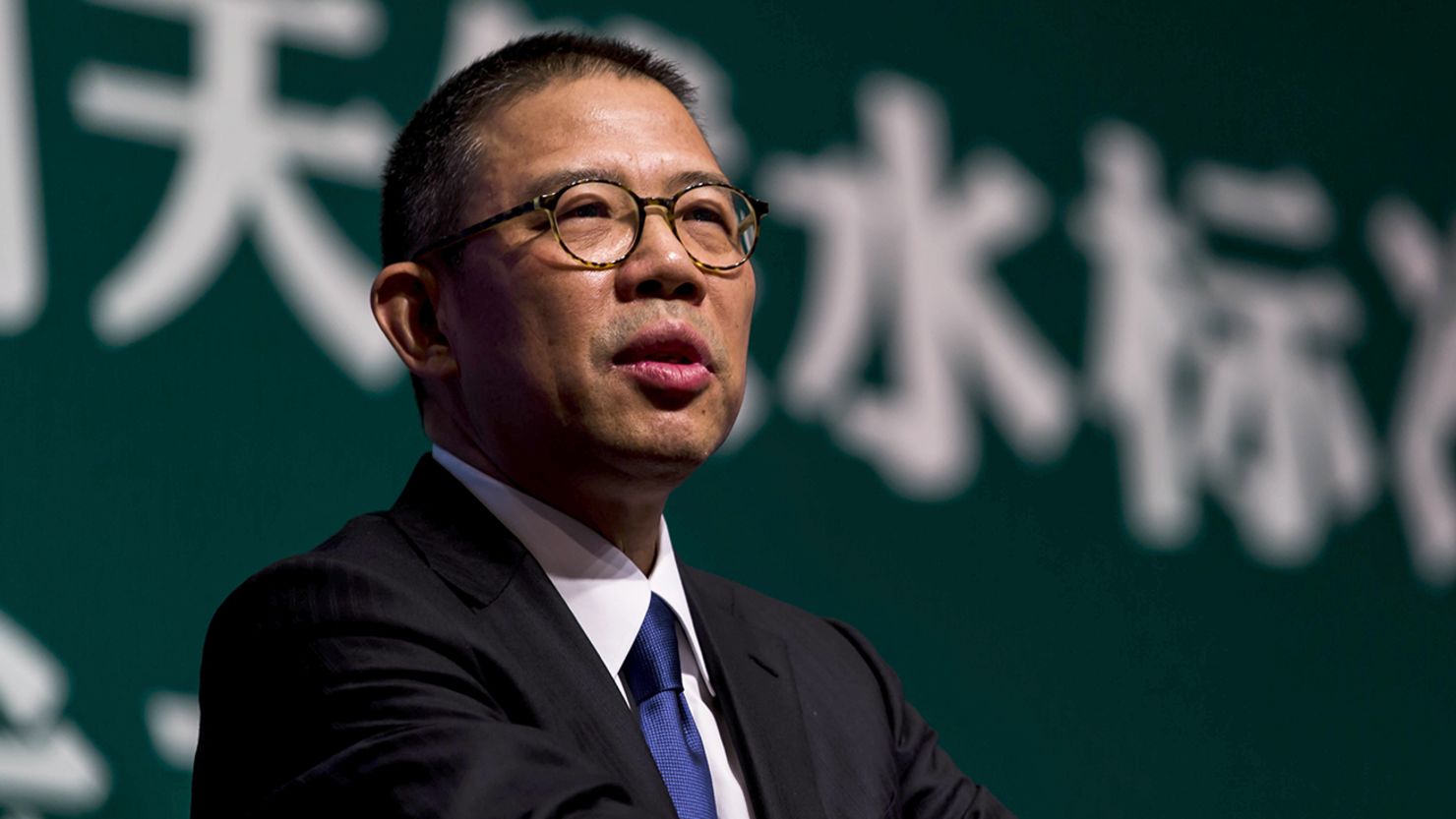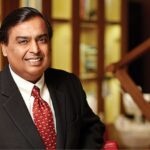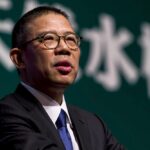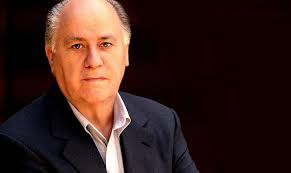- Home
- Billionaires
- Investing Newsletters
- 193CC 1000
- Article Layout 2
- Article Layout 3
- Article Layout 4
- Article Layout 5
- Article Layout 6
- Article Layout 7
- Article Layout 8
- Article Layout 9
- Article Layout 10
- Article Layout 11
- Article Layout 12
- Article Layout 13
- Article Layout 14
- Article Sidebar
- Post Format
- pages
- Archive Layouts
- Post Gallery
- Post Video Background
- Post Review
- Sponsored Post
- Leadership
- Business
- Money
- Small Business
- Innovation
- Shop
Recent Posts
Zhong Shanshan: The Lone Wolf Billionaire of China

Zhong Shanshan, often referred to as the “Lone Wolf” of China’s business world, is one of the most enigmatic and fascinating figures in modern entrepreneurship. He rose to prominence not through flashy public appearances or a charismatic media presence, but through quiet determination, relentless effort, and an uncanny ability to spot opportunities in two of China’s most competitive industries—beverages and pharmaceuticals. As the founder of Nongfu Spring, one of China’s most popular bottled water brands, and the majority shareholder of Beijing Wantai Biological Pharmacy, Zhong’s journey from a school dropout to becoming one of the richest individuals in Asia is a story of resilience, intuition, and unconventional thinking.
Zhong was born in December 1954 in Hangzhou, a city in China’s Zhejiang province known for its cultural history and natural beauty. His early years were marked by hardship. During the tumultuous Cultural Revolution, his parents, both intellectuals, were labeled as “rightists,” and Zhong had to leave school at a young age. With limited formal education, he took on various manual jobs including construction work, newspaper delivery, and bricklaying. These formative experiences exposed him to the gritty realities of life and business, shaping his pragmatic mindset and instilling in him a deep appreciation for independence and self-reliance.
Despite not having a traditional academic background, Zhong was curious and driven. In the late 1970s, following the end of the Cultural Revolution and the reopening of Chinese universities, he enrolled at the Zhejiang Radio and TV University to study journalism. He briefly worked as a reporter for Zhejiang Daily, a position that gave him a broader understanding of society and the dynamics of the Chinese economy during its period of rapid reform. However, Zhong soon realized that his ambitions extended beyond journalism. In the 1980s, he left his media job and entered the world of business.
His initial ventures were modest. He tried his hand at selling mushrooms, turtles, and other agricultural products. Though not particularly successful at first, these early experiences taught him invaluable lessons about supply chains, consumer needs, and the volatility of markets. In 1996, Zhong founded Nongfu Spring, a bottled water company that would become the cornerstone of his empire. At a time when many companies in China were selling purified water stripped of minerals, Zhong made the bold decision to sell natural spring water that retained its minerals, branding it as healthier and more natural. This differentiated his product from competitors and tapped into the growing Chinese middle class’s concerns about health and quality.
Nongfu Spring’s marketing was as distinctive as its product. The company used memorable slogans and compelling branding to position itself as a premium choice in the bottled water market. Under Zhong’s leadership, the company expanded its product range to include teas, juices, and other beverages, consistently emphasizing purity and quality. By remaining laser-focused on branding, consumer perception, and efficient distribution, Zhong turned Nongfu Spring into a household name in China. He insisted on tight control over operations and avoided over-dependence on any single channel or supplier, ensuring that the company could withstand market fluctuations.
In addition to his success with Nongfu Spring, Zhong invested in the pharmaceutical sector, a move that would significantly expand his wealth. He became the majority shareholder of Beijing Wantai Biological Pharmacy, a company involved in the development and production of diagnostic and vaccine-related technologies. Wantai gained prominence during the COVID-19 pandemic when it played a role in the development of testing kits. Zhong’s dual investments in health and wellness through beverages and pharmaceuticals resonated with the broader public demand for health-focused products and positioned him at the intersection of two booming sectors.
Zhong’s business style is notably different from many other billionaires. He is known for his reclusive nature and aversion to media attention. He rarely gives interviews and avoids participating in business forums or public events. This earned him the nickname “Lone Wolf,” a moniker he does not seem to mind. Unlike many tech moguls or high-profile tycoons who cultivate personal brands, Zhong prefers to let his products and results speak for themselves. His preference for privacy has not limited his effectiveness. In fact, many believe that his low-key approach has allowed him to focus more intently on operations and long-term strategy without the distractions of public scrutiny.
In 2020, Nongfu Spring went public on the Hong Kong Stock Exchange, one of the most highly anticipated IPOs of the year. The listing catapulted Zhong into the ranks of the world’s wealthiest individuals, making him, at one point, the richest man in China. That same year, Wantai also went public, further boosting his fortune. His combined holdings made him a rare example of someone who achieved billionaire status through success in both the consumer goods and healthcare sectors—two areas often seen as fundamentally different in their operational models and market dynamics.
Zhong’s story is not just one of wealth accumulation but also of determination and individuality. He represents a new archetype of Chinese entrepreneur—self-made, adaptive, and fiercely independent. His life challenges the stereotype that success in China’s business world depends solely on political connections or high-level networking. Zhong built his empire largely outside the spotlight, without aligning himself too closely with any political faction or celebrity endorsement, proving that a product-driven and consumer-focused approach can still triumph in the modern economy.
Even with his enormous wealth, Zhong is not known for flamboyant spending or luxurious living. His personal life remains largely private, and he keeps a distance from the elite social circles that many billionaires frequent. This, too, has contributed to his mystique. What is clear, however, is that Zhong remains deeply involved in the day-to-day operations of his businesses and is committed to their continued growth and innovation. He has expressed interest in exploring more opportunities in biotechnology and nutrition, areas he believes will shape the future of health and consumer behavior.
Zhong Shanshan’s rise is a testament to the idea that true entrepreneurship can thrive even in the face of adversity. From a bricklayer and reporter to the helm of a multi-billion-dollar empire, his story underscores the value of persistence, intuition, and staying true to one’s vision. As a leader who defies convention and chooses solitude over stardom, Zhong serves as a powerful reminder that success comes in many forms—and that sometimes, the quietest voices leave the deepest echoes.
- Beijing Wantai
- beverage empire
- bottled water
- Brand Loyalty
- business strategy
- China wealth journalist turned businessman innovation in China
- Chinese billionaire
- Chinese Business
- Chinese corporate culture
- Chinese Market
- Consumer Goods
- corporate privacy
- COVID-19 testing
- Cultural Revolution
- diagnostic industry
- economic independence
- economic reform
- Hangzhou
- health industry
- health products
- Hong Kong Stock Exchange
- IPO Success
- lone wolf entrepreneur
- low profile billionaire Chinese innovation
- Market Disruption
- media-shy
- minimalist entrepreneur
- natural products
- natural spring water
- Nongfu Spring
- nutritional health
- personal discipline
- pharmaceuticals
- private business owner
- private entrepreneur business leadership Zhejiang province water industry
- product branding
- Public Health
- quality control
- resilient entrepreneur
- rural beginnings
- self-made billionaire
- self-reliance
- Visionary Leader
- Wantai Biological
- Zhong Shanshan
Recent Posts
Categories
- 193 Countries Consortium Partner1
- 193cc Digital Assets2
- 5G1
- Aerospace & Defense48
- AI37
- Arts3
- Banking & Insurance11
- Big Data3
- Billionaires1,274
- Boats & Planes1
- Business332
- Careers13
- Cars & Bikes79
- CEO Network1
- CFO Network17
- CHRO Network1
- CIO Network1
- Cloud10
- CMO Network18
- Commercial Real Estate7
- Consultant1
- Consumer Tech194
- CxO1
- Cybersecurity73
- Dining1
- Diversity, Equity & Inclusion4
- Education7
- Energy8
- Enterprise Tech29
- Events11
- Fintech1
- Food & Drink2
- Franchises1
- Freelance1
- Future Of Work2
- Games149
- GIG1
- Healthcare79
- Hollywood & Entertainment203
- Houses1
- India’s 1000 Richest1
- Innovation46
- Investing2
- Investing Newsletters4
- Leadership65
- Lifestyle11
- Manufacturing1
- Markets20
- Media327
- Mobile phone1
- Money13
- Personal Finance2
- Policy569
- Real Estate1
- Research6
- Retail1
- Retirement1
- Small Business1
- SportsMoney42
- Style & Beauty1
- Success Income1
- Taxes2
- Travel10
- Uncategorized13
- Vices1
- Watches & Jewelry2
- world's billionaires1,243
- Worlds Richest Self-Made Women2
Related Articles
Mark Zuckerberg: The Architect of the Social Media Revolution
Mark Zuckerberg, the co-founder and CEO of Facebook (now Meta Platforms Inc.),...
By 193cc World's BillionairesApril 30, 2025Sergey Brin: The Innovator Who Helped Shape the Digital Age
Sergey Brin, co-founder of Google and one of the pivotal figures in...
By 193cc World's BillionairesApril 30, 2025Amancio Ortega: The Fashion Titan Behind Zara’s Global Empire
Amancio Ortega, the enigmatic founder of the Inditext Group and the visionary...
By 193cc World's BillionairesApril 30, 2025Larry Page: The Visionary Engineer Behind the Google Revolution
Larry Page, a computer scientist and internet entrepreneur, is best known as...
By 193cc World's BillionairesApril 30, 2025













Leave a comment